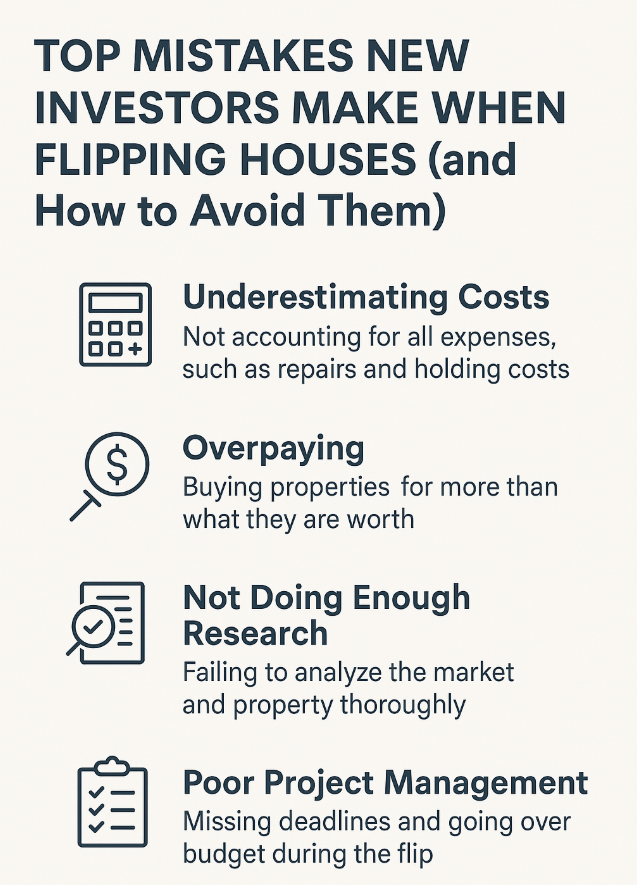Flipping Houses: Understanding Common Pitfalls for New Investors
Flipping Houses: Understanding Common Pitfalls for New Investors
Flipping houses seems like a fast track to profit in real estate; however, many new investors find themselves ensnared in common traps that can lead to financial loss rather than the anticipated gain. Learning about these pitfalls can help newcomers navigate this lucrative but tricky landscape more effectively.
1. Lack of Research and Planning
One of the most significant mistakes new investors make is jumping into house flipping without adequate research. Many assume that any house available at a low price is a good deal, but this is often not the case. Before investing in a property, it’s essential to conduct thorough market research, understand the local real estate market, and recognize what potential buyers might look for. This includes analyzing neighborhood trends, property values, and future development plans in the area.
Additionally, proper financial planning cannot be overstated. New investors sometimes underestimate the costs involved in flipping houses, including purchase price, renovation costs, carrying costs such as taxes, insurance, and utilities, and the cost of selling the home.
How to Avoid This Mistake:
Conduct extensive market research to choose the right property. Create a detailed business plan that includes a budget with a 10-20% contingency for unexpected expenses.
2. Overestimating DIY Skills
Many first-time house flippers think they can save money by doing most or all of the renovation work themselves. While DIY can reduce expenses, overestimating one’s own skills can lead to subpar work, safety issues, or even legal troubles if the work doesn’t comply with local building codes.
How to Avoid This Mistake:
Be realistic about what you can do yourself and budget for professional help where needed. It’s often more cost-effective to hire skilled professionals who can complete the job quickly and to a high standard.
3. Underestimating the Time Required
Time is a critical factor in the profitability of flipping houses. Longer renovation times mean higher carrying costs and potentially missing the optimal selling season. New investors frequently underestimate the timeline for project completion, which can have cascading effects on the project’s profitability.
How to Avoid This Mistake:
Develop a realistic timeline with room for delays, and consider working with experienced contractors who can ensure the project stays on track.
4. Skimping on Quality
In an attempt to maximize profits, some new flippers might choose the cheapest materials and solutions. This can be a critical error, as today’s buyers are generally well-informed and value quality. Using poor materials or cutting corners in renovations can lead to tougher inspections, lower appraisal values, and ultimately, a harder sell.
How to Avoid This Mistake:
Invest in quality materials and craftsmanship. Remember that the final product has to appeal to buyers who will scrutinize the details closely.
5. Poor Financial Management
Effective financial management is crucial when flipping houses. This includes not only sticking to a budget and timeline but also managing the cash flow effectively to cover expenses until the house is sold. Some new investors fail to secure adequate funding or exhaust their finances midway, stalling the project.
How to Avoid This Mistake:
Ensure you have sufficient funding and a clear financial plan before starting. This might include lines of credit, loans, or other financing methods. Additionally, keep detailed records of all expenditures to monitor the budget throughout the project.
Conclusion
Flipping houses can indeed be profitable, but it demands a lot of hard work, due diligence, and strategic planning. By understanding and preparing for these common mistakes, new investors can enhance their chances of success and make their entry into real estate investing a profitable endeavor. Avoiding these errors helps build a foundation that supports not just a single successful flip but a sustainable venture into the world of real estate investment.







